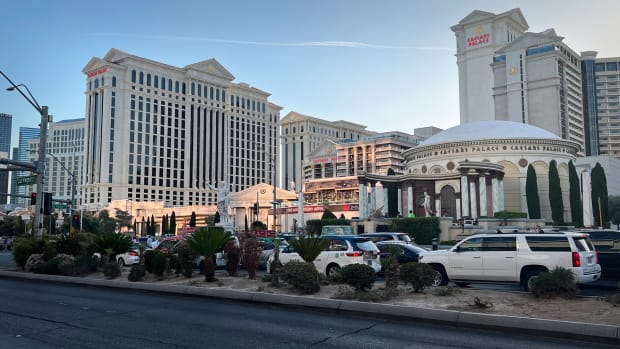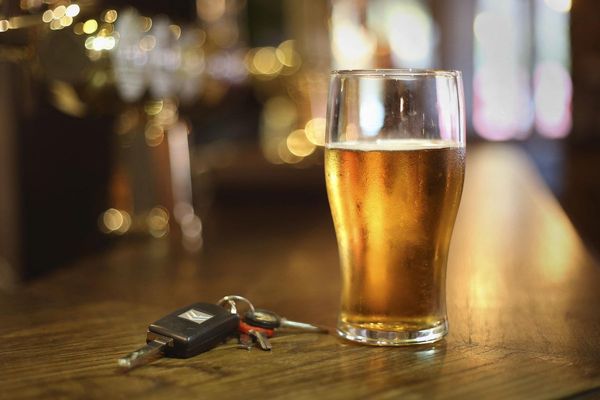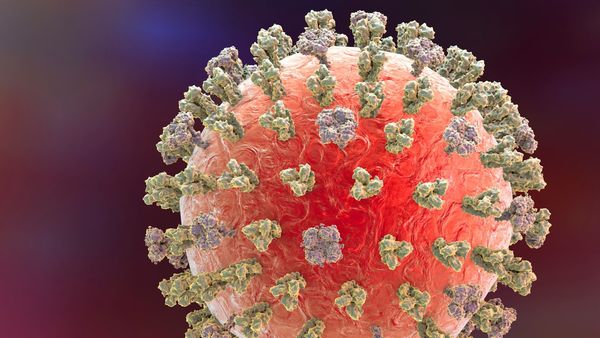The Las Vegas Strip seems bigger than life -- an adult theme park built by magic and dreams.
It's a place to either escape reality or live a heightened version of it. In many ways, when you get lost in the sea of Caesars Entertainment (CZR), MGM Resorts (MGM), Wynn Resorts (WYNN), and the other titans of that 4.2-mile stretch of land, you feel as of you're in another land entirely.
It's a bit like sinking into the immersive Harry Potter and Star Wars lands at Universal Studios (CMCSA) and Disney World, (DIS) albeit with many more questionable street performers and the pervasive smell of pot. That made the covid pandemic even more unthinkable in Las Vegas than it was in other places.
In March 2020 the entire city -- including its hotels and casinos -- closed down to stop the spread of covid. And when the city reopened after a relatively short closure, the Strip felt a bit post-apocalyptic. Areas that were usually crowded were hauntingly empty. People wore masks -- not just inside, but also poolside, which created some odd visuals -- and nothing felt normal.
That was still true in late 2021 when the Consumer Electronics Show returned (sort of) as an in-person event. Many big companies pulled out of the event late and the show floor was more QR codes than it was people showing off products.
Covid crippled Las Vegas and the comeback moved slowly, with the city battling perception, international travel bans, expensive flights, and ongoing covid fears.
Now, as the pandemic has faded but most certainly has not gone away, Las Vegas and the Las Vegas Strip got some very good news.

Image source: Daniel Kline/TheStreet
Las Vegas Covid Cases, Deaths Drop
As we've all learned over the past two years, covid may never go away. But vaccines, masks, and other protocols are designed to contain, not remove, the danger of the virus. The goal is to minimize the prospect of serious illness and to keep hospital beds available for people who truly need them.
That appears to be happening as Nevada has been showing as green on a Centers for Disease Control and Prevention map of covid levels across the U.S., the Las Vegas Review-Journal reported. Green, according to the CDC, means that an area has low levels of covid-19.
From June through August of this year, about 400 covid-19 deaths were reported in Clark County, "less than half the number of either of the two previous summers," the paper reported. "There were more than 1,200 covid-19 hospitalizations, roughly one-third the number in summer 2020 and less than half of 2021’s tally."
To be sure, some of the drop in infections might stem from less routine testing for covid.
Caesars and MGM Show Strong Results
Both Caesars and MGM have steadily built back their Las Vegas Strip business.
Caesars Chief Operating Officer Anthony Carano spoke about his company's results during its second-quarter-earnings call.
"Occupancy improved significantly, reaching 97% as a result of strong demand and our ability to lift self-imposed occupancy caps," the executive said.
"Strong occupancy when combined with the record [average daily rate], resulted in the highest quarterly room hotel revenues for our Las Vegas segment in company history. Group and convention also posted an all-time quarterly Ebitda record, led by the strong performance of the Caesars Forum."
MGM Chief Financial Officer Jonathan Halkyard had similarly upbeat things to say during his company's second-quarter-earnings call.
"Our same-store net revenues in Las Vegas, which excludes Aria, Vdara and the Cosmopolitan, in 2022 increased 60% versus the second quarter of 2021," he said. "And same-store adjusted property Ebitdar in Las Vegas was up 51% versus the second quarter last year.
"Now unlike the visitation or the variation month-to-month that we experienced in the first quarter due to omicron, our second-quarter occupancy, ADR and profitability were consistent through the quarter. Second-quarter occupancy was 92%, continuing the strength that we saw when we exited March."
Both companies also noted that they achieved these numbers with very little international travel. They also pointed out that they expected a strong events calendar -- including a Super Bowl and Formula 1 race -- would drive strong traffic going forward.







